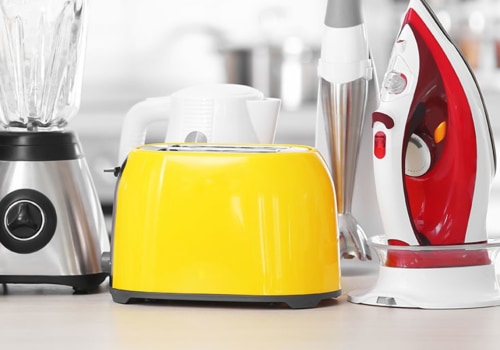When it comes to household appliances, there is no one-size-fits-all answer for how long they should last. Generally, most appliances will last between 10 and 15 years with proper maintenance. However, if you start to notice that your appliance is malfunctioning, it may be time to consider replacing it. It's easy to assume that appliances will work well until they start to break down, but most major appliances have a lifespan of 10 to 20 years.
This includes the HVAC system, water heater, kitchen appliances, laundry machines and more. If you're not particularly handy and your appliance is malfunctioning after the warranty has expired, it can be difficult to determine if it needs to be repaired or replaced. As a general rule of thumb, if repairing a household appliance is going to cost more than 50 percent of the price of a replacement, it would be wise to buy a newer model if your budget allows it. This 50 percent rule also depends on the age of the appliance.
If the appliance is only a couple of years old and the warranty has just ended, it is likely to be cheaper to repair it. For example, if you notice water accumulating under or around your washing machine, this is usually a sign that something is wrong and it may be time to replace it. If you're dealing with a leaking washing machine, you should repair or replace it as soon as possible in order to avoid any water damage to your floor. When it comes to smaller, lower-cost appliances such as vacuum cleaners, sometimes the hose is clogged or a filter needs to be replaced.
If you've checked those things and the vacuum still doesn't work properly, then it may be time to look for a replacement. If you start spraying dust in the room instead of keeping it inside a bag or other container, then you should stop using the vacuum cleaner and start looking for a new one. When it comes to kitchen appliances such as refrigerators, microwaves, stoves and dishwashers, they consume a lot of energy and usually last between 13 and 15 years. If the burners on your stove don't ignite or you smell leaking gas, then your stove may have reached its average lifespan and needs to be replaced. Similarly, if you can't get the microwave power button to start the cycle, then it's time for a new model. When an appliance starts to break down, you'll have to decide if it's worth repairing or replacing it.
If you're thinking of repairing or replacing your dryer, buying a new one won't break the bank if repairs aren't covered under warranty. The closer your appliance is to its hypothetical expired expiration date, the wiser it will be to replace it rather than repair it. However, if you can afford it, you're probably better off replacing an appliance that sinks into costly repairs. Knowing when to repair and replace your appliances can keep you from being stranded without them when you need them. When an appliance is old and does not work efficiently, it is easy to decide to replace the machine instead of repairing it - let it rest in peace. In addition to the specific factors of the appliance, a good rule of thumb is to replace the appliance if the repair costs exceed half the cost of a replacement.




